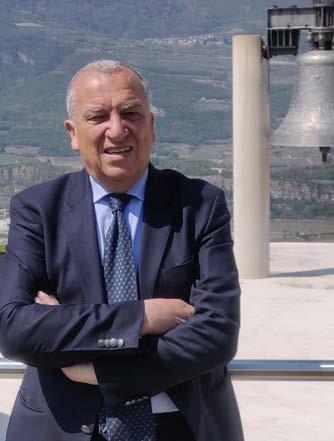02 MALTA BECOMES A MEMBER OF THE MARIA DOLENS PEACE MEMORANDUM
P
erhaps we are not quite “ready to die”; a little more before football matches however the death rate is low. Goffredo Mameli, who entrusted his friend composer Michele Novaro in 1847 with the six stanzas of which we know only the first by heart, was certainly ready for it. The Italian national anthem, as with most others, serves to stir the spirits, and at that time it was justified. Malta’s on the other hand does not. It is a prayer - sweet, passionate, poetic. Hearing the two songs one after the other on 19 July of last year during Malta’s accession ceremony to the ‘Campana’ Peace Memorandum was like going through two distant eras. One made up of patriotic struggles that require daring and recklessness, the other marked by a reflection on the future rather than the present, on what to do once independence is achieved. One invites us to gather “in cohort” in a spirit of brotherhood necessary to de-
The Ambassador of Malta to Italy Carmel Vassallo
These characteristics emerged perfectly in the performance of the Lizzana Band directed by Maestro Andrea Loss, who for family reasons feels at home in both countries. If you ask him he will tell you that the words of the Maltese anthem, which in this case could only be evoked, were written by a poet priest, DunKarmPsaila, when a world war had just ended and no one expected another. He goes on to explain that it was actually supposed to be a school song but history almost always takes unpredictable paths.
“
The text asks God to give «wisdom and mercy to those who govern, health to those who work» and to ensure «unity and peace» for the people
“
A poem as the national anthem
feat a present and real enemy, the other asks God to give “wisdom and mercy to those who govern, health to those who work” and to ensure “Unity and Peace” for the people.





